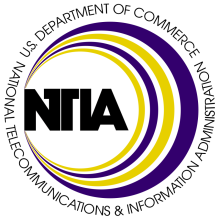NTIA Letter of Credit Waiver Victory for Community Broadband
The National Telecommunications and Information Administration (NTIA) recently announced it has created a “programmatic waiver” that offers alternatives to the much-criticized letter-of-credit (LOC) requirement buried in the BEAD program.
The announcement comes after hearing from a coalition of public interest groups and a chorus of broadband experts that the LOC requirement would effectively shut out smaller ISPs from participating in the national effort to expand high-speed Internet access.
When the bipartisan infrastructure law was passed in 2021, establishing the $42.5 billion BEAD program, the NTIA issued a Notice of Funding Opportunity (NOFO) that detailed the spending rules for BEAD grants. Designed to ensure Internet service providers (ISPs) did not take federal grant dollars and leave a project incomplete, the LOC requires BEAD grant applicants to provide a letter-of-credit from a bank that verifies the applicant has at least 25% of the grant dollar amount in cash reserves held in a bank account for the entire time it takes to complete a network build.



